In Turkey, legend has it that one day in 1361, forty Ottoman soldiers came upon a meadow near Samona, now in northern Greece, and settled for a rest. But some of them began to wrestle. After a while, only two of them were left. They went on wrestling into the night. In the morning, their companions found the two had died from exhaustion. They buried the wrestlers in the meadow and left. One year later, when the soldiers came back to pay their respects, forty springs had appeared just where the two graves had been. The legend of Kirkpinar (Forty Springs) allegedly gave its name to an annual oil wrestling championship that has been organized in Edirne, a Turkish city in Eastern Thrace, since the 14th century. That makes of Kirkpinar presumably the world’s oldest continuously sanctioned sporting competition.
The dream of each wrestler (pehlivan) is to win the Kirkpinar Golden Belt and become a “chief wrestler” (baspehlivan). Şaban Yilmaz achieved this dream in 2005, at age 29. As a child, he used to attend tournaments with his father, Mustafa. Oil wrestling has been a part of his life as far as he can remember. Today, he continues to participate to oil wrestling tournaments all over Turkey, including the Kirkpinar oil wrestling festival. Being a pehlivan means much more than intense training and wrestling. It means more than wearing a kispet (thick trousers made of water buffalo or cow leather) and pouring oil on one’s body. In Turkish society, pehlivans are considered exemplary figures, promoting values such as generosity, honesty, respectfulness and adherence to traditions and customs. “Being a pehlivan is something that goes with you to the grave”, says Yilmaz, now 37. “A pehlivan never looks scornfully at people. Those who look down on people also look down on God. I always try not to hurt other people’s feelings. I respect the old and cherish the young. My body might look tougher than most people’s, but my heart beats the same.”
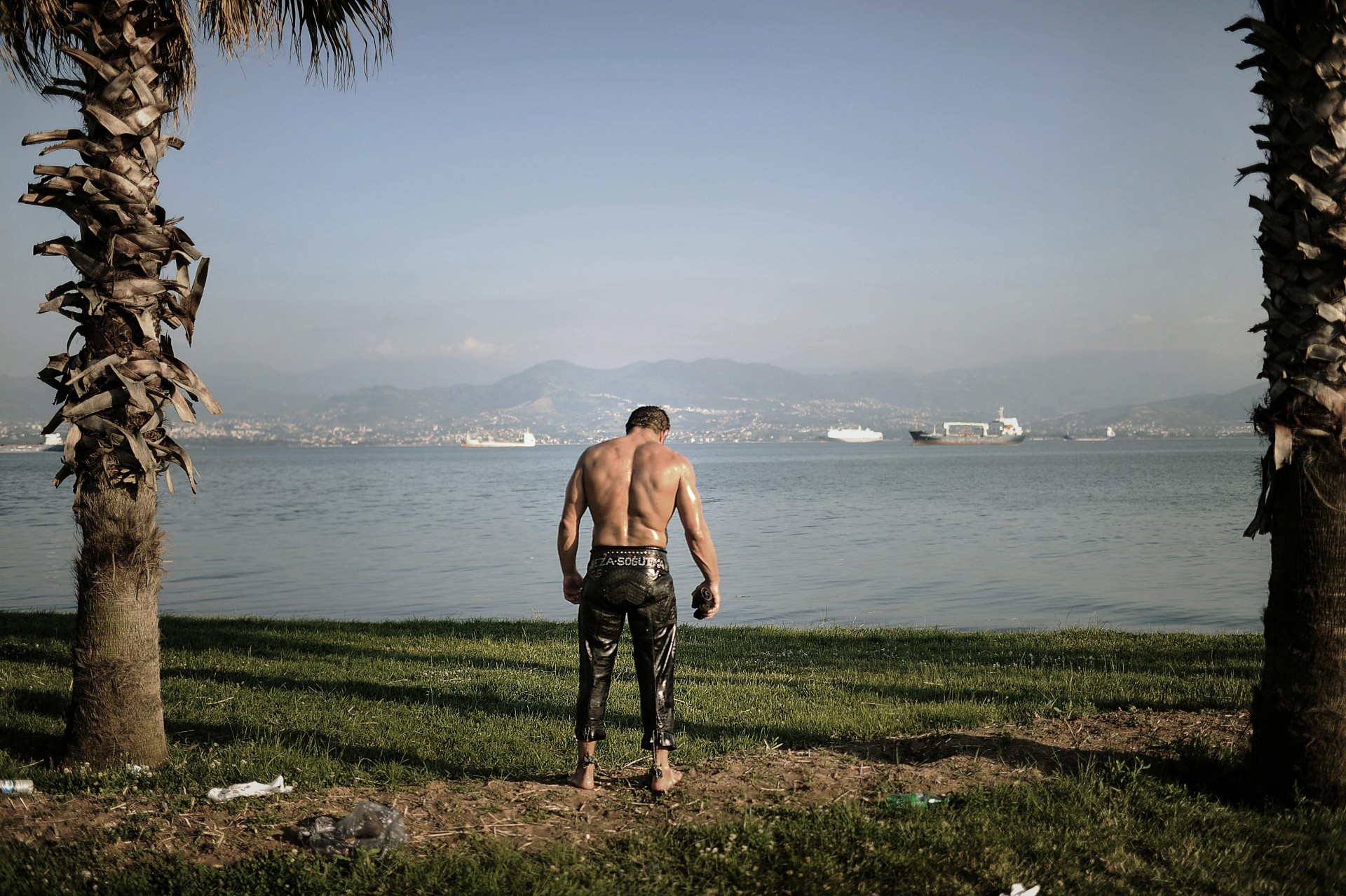 The dream of every pehlivan (wrestler) is to become a “chief wrestler”, a “başpehlivan”, like Şaban Yilmaz. (22.08.2013, Samsun, Turkey)
The dream of every pehlivan (wrestler) is to become a “chief wrestler”, a “başpehlivan”, like Şaban Yilmaz. (22.08.2013, Samsun, Turkey) 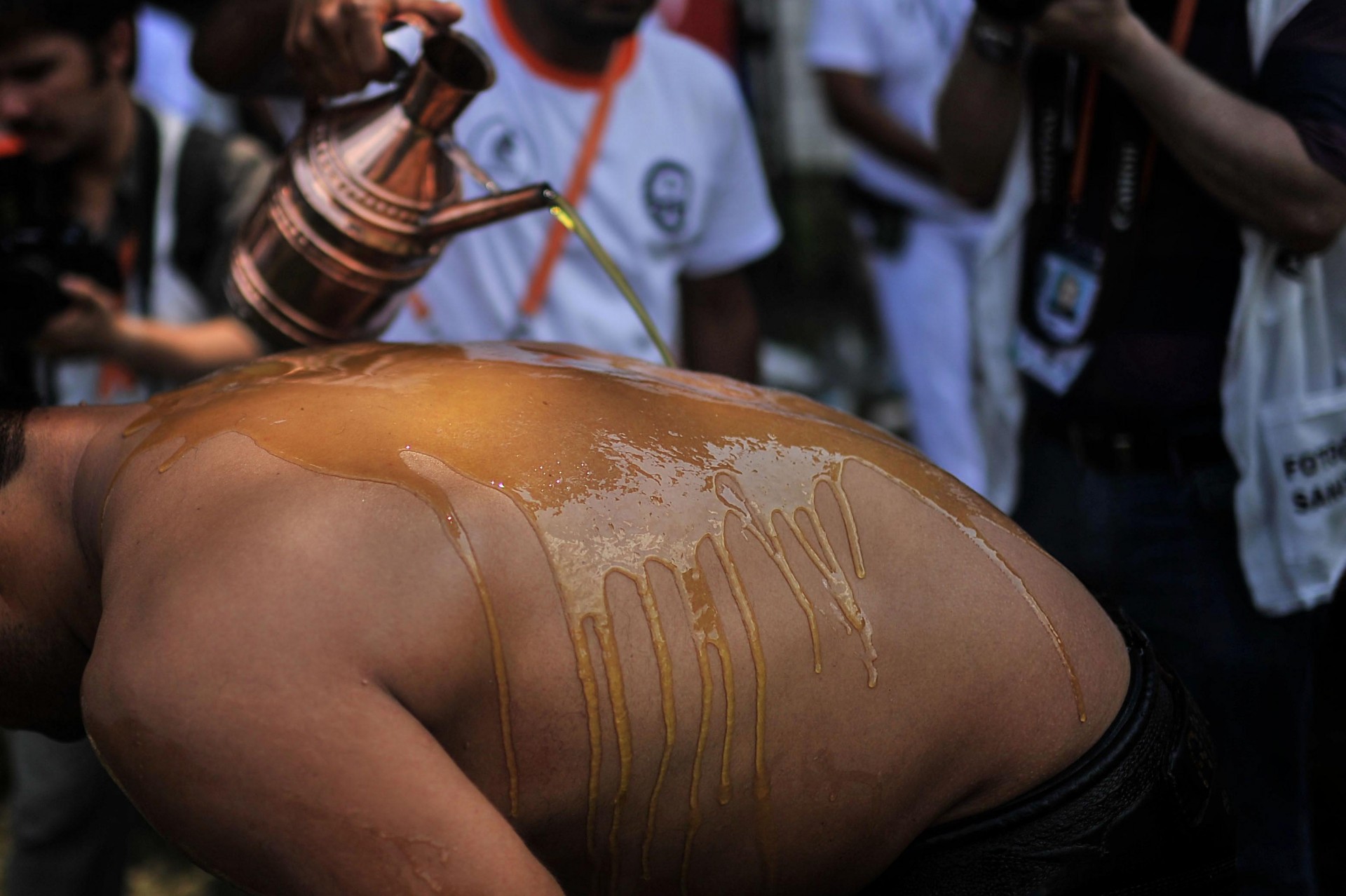 Here in the western city of Edirne, home to the annual Kirkpinar Oil Wrestling Championship, Yilmaz starts by pouring olive oil on his body. (07.07.2012, Edirne, Turkey)
Here in the western city of Edirne, home to the annual Kirkpinar Oil Wrestling Championship, Yilmaz starts by pouring olive oil on his body. (07.07.2012, Edirne, Turkey)  Şaban Yilmaz and other “chief wrestlers” participating to the Avcilar municipality oil wrestling tournament in Istanbul are being introduced to the public. (25.08.2013, İstanbul, Turkey)
Şaban Yilmaz and other “chief wrestlers” participating to the Avcilar municipality oil wrestling tournament in Istanbul are being introduced to the public. (25.08.2013, İstanbul, Turkey) 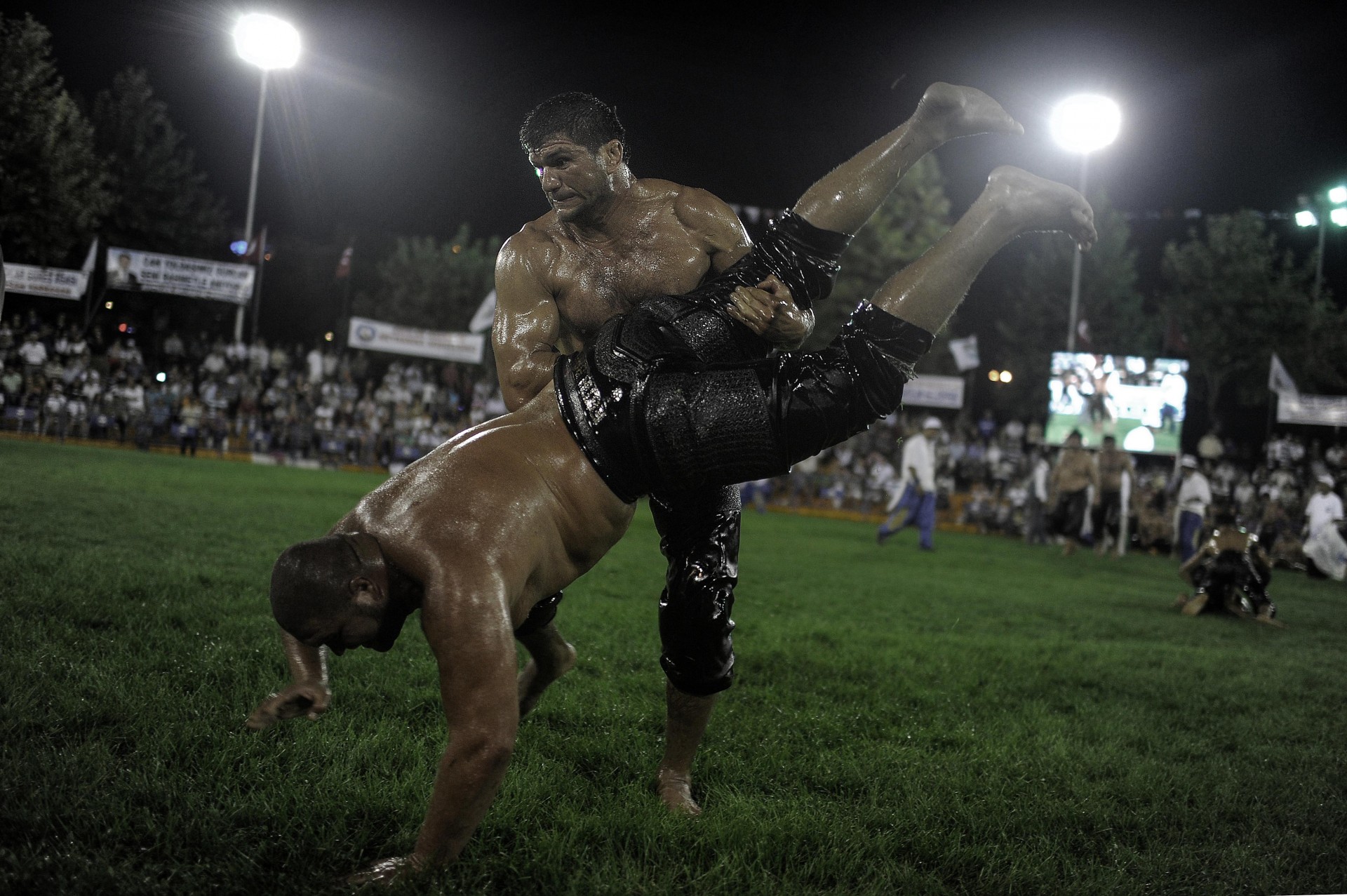 Şaban Yilmaz tries to throw his opponent on his back to win the match. (25.08.2013, İstanbul, Turkey)
Şaban Yilmaz tries to throw his opponent on his back to win the match. (25.08.2013, İstanbul, Turkey) 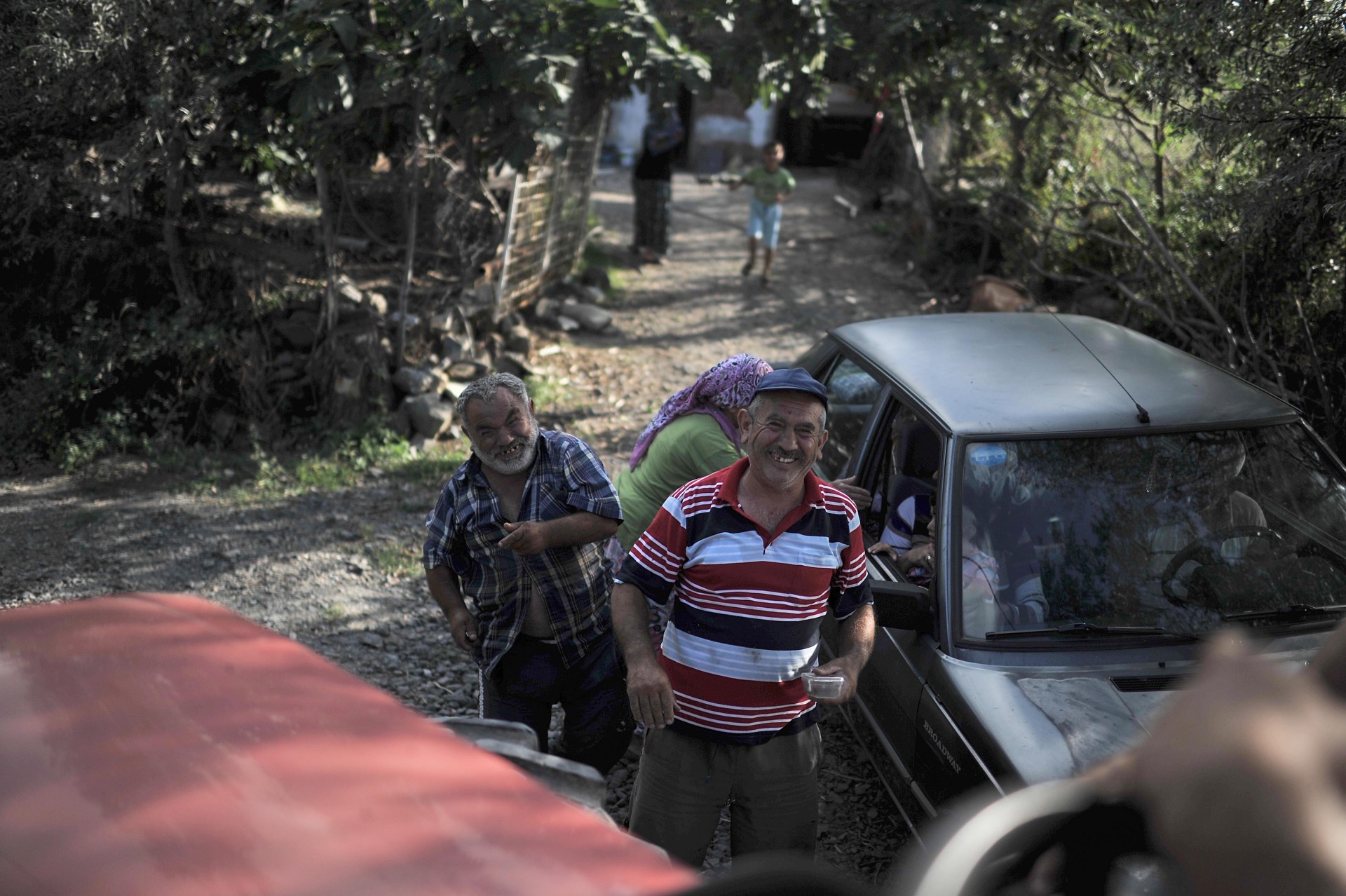 Yilmaz is greeted by his family in Samsun (northern Turkey) after a long wrestling season away from home. (22.08.2013, Samsun, Turkey)
Yilmaz is greeted by his family in Samsun (northern Turkey) after a long wrestling season away from home. (22.08.2013, Samsun, Turkey) 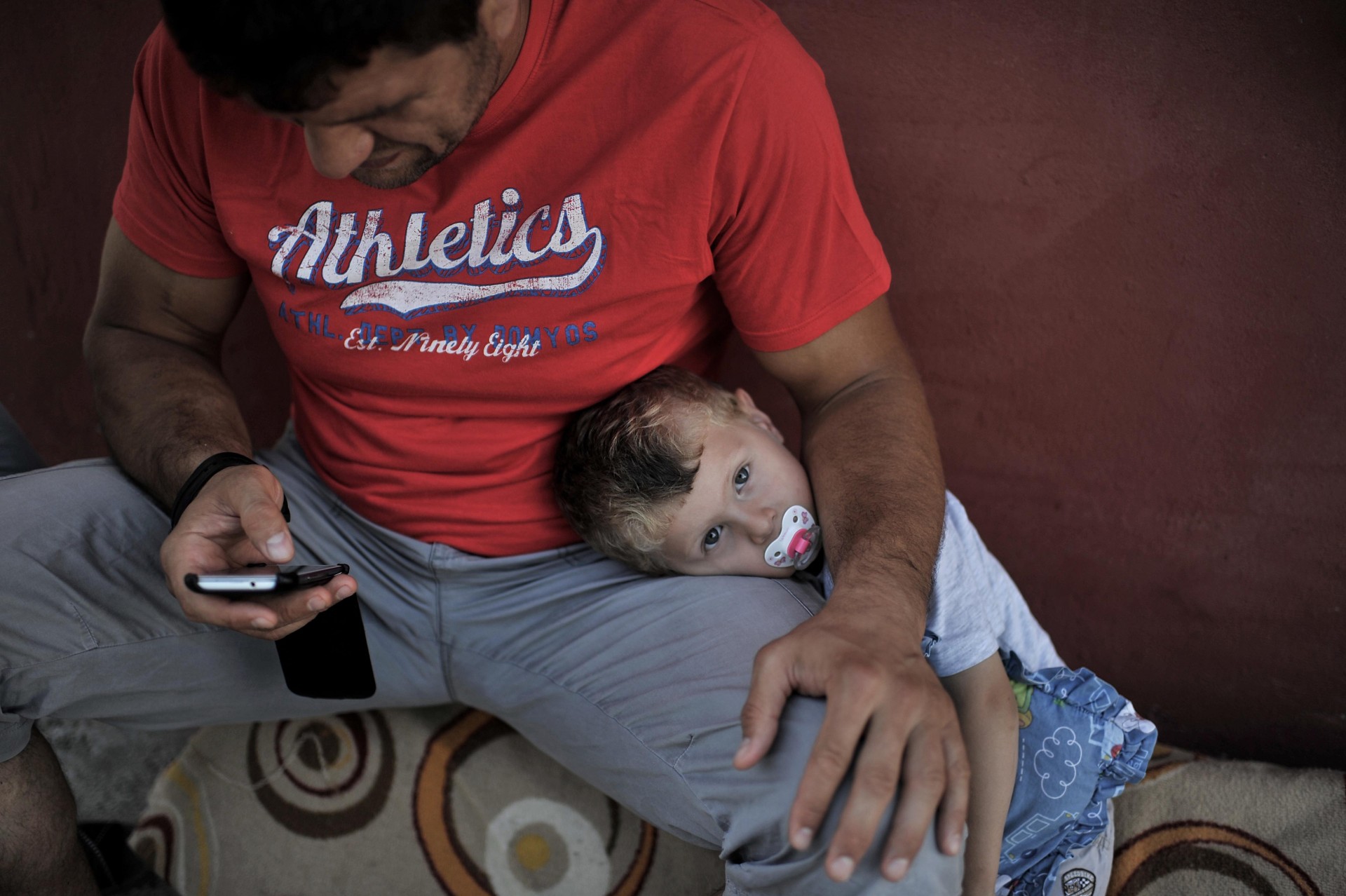 When he comes home, Yilmaz almost never stays away from his five-year-old son, Mustafa, whom he hasn't seen in weeks. (22.08.2013, Samsun, Turkey)
When he comes home, Yilmaz almost never stays away from his five-year-old son, Mustafa, whom he hasn't seen in weeks. (22.08.2013, Samsun, Turkey) 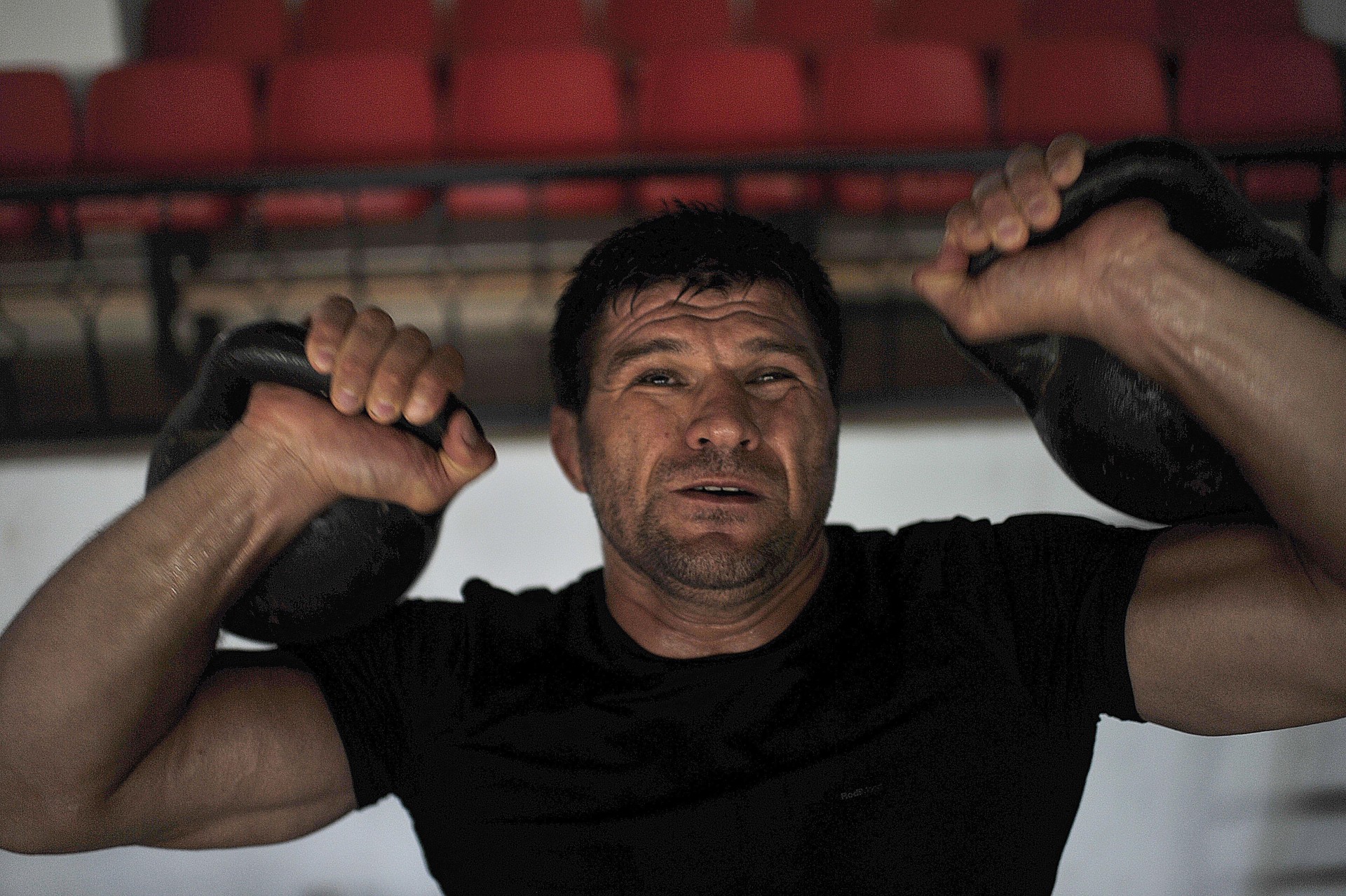 Yilmaz's physical training programme mainly consists of weightlifting. He can lift up to 40 kilos with one hand, 20 times in a row, and repeat the same exercise three times. (23.08.2013, Samsun, Turkey)
Yilmaz's physical training programme mainly consists of weightlifting. He can lift up to 40 kilos with one hand, 20 times in a row, and repeat the same exercise three times. (23.08.2013, Samsun, Turkey) 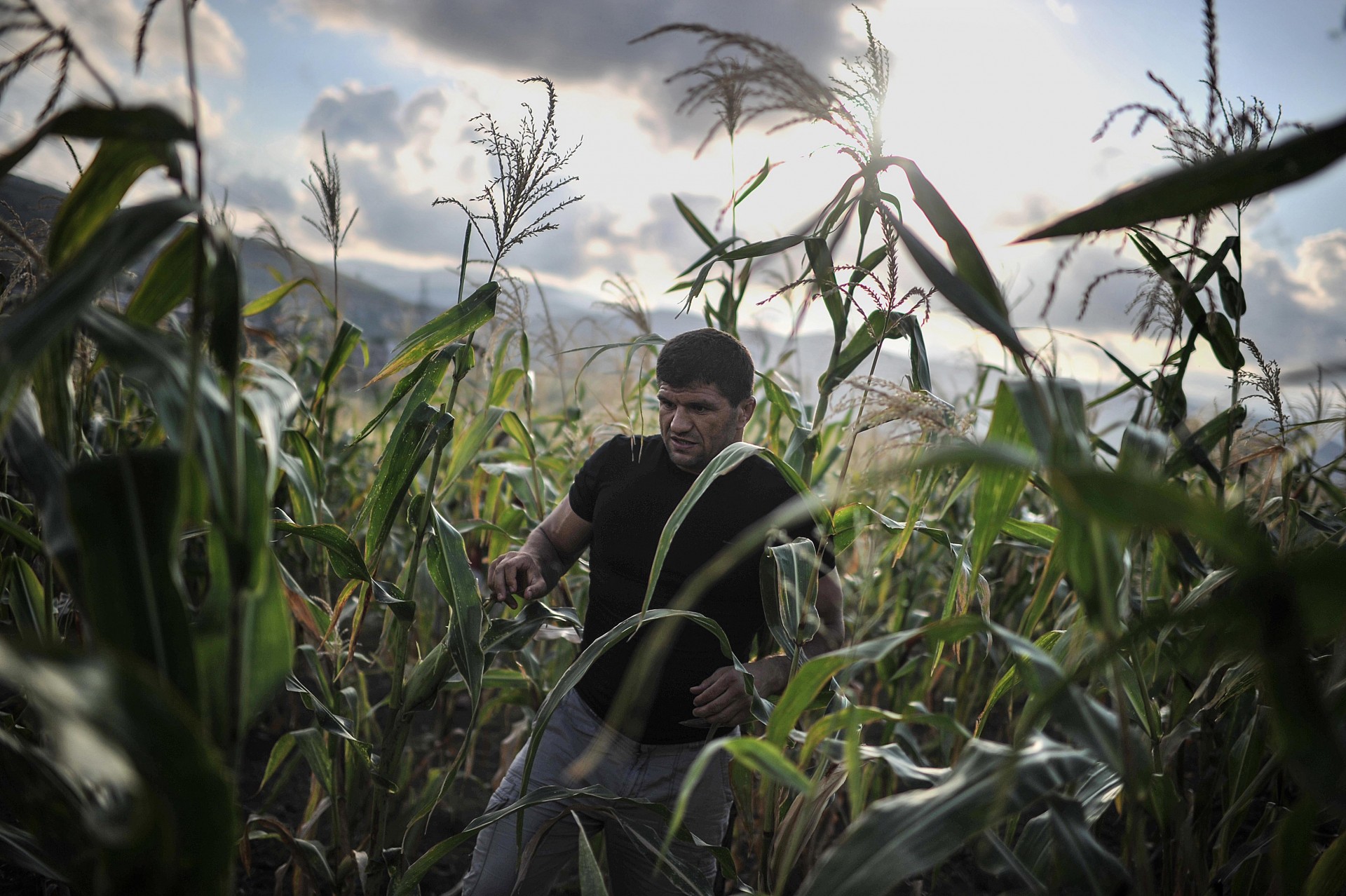 Yilmaz, who says life and nature are one, enjoys spending time in his family's corn fields. (23.08.2013, Samsun, Turkey)
Yilmaz, who says life and nature are one, enjoys spending time in his family's corn fields. (23.08.2013, Samsun, Turkey) 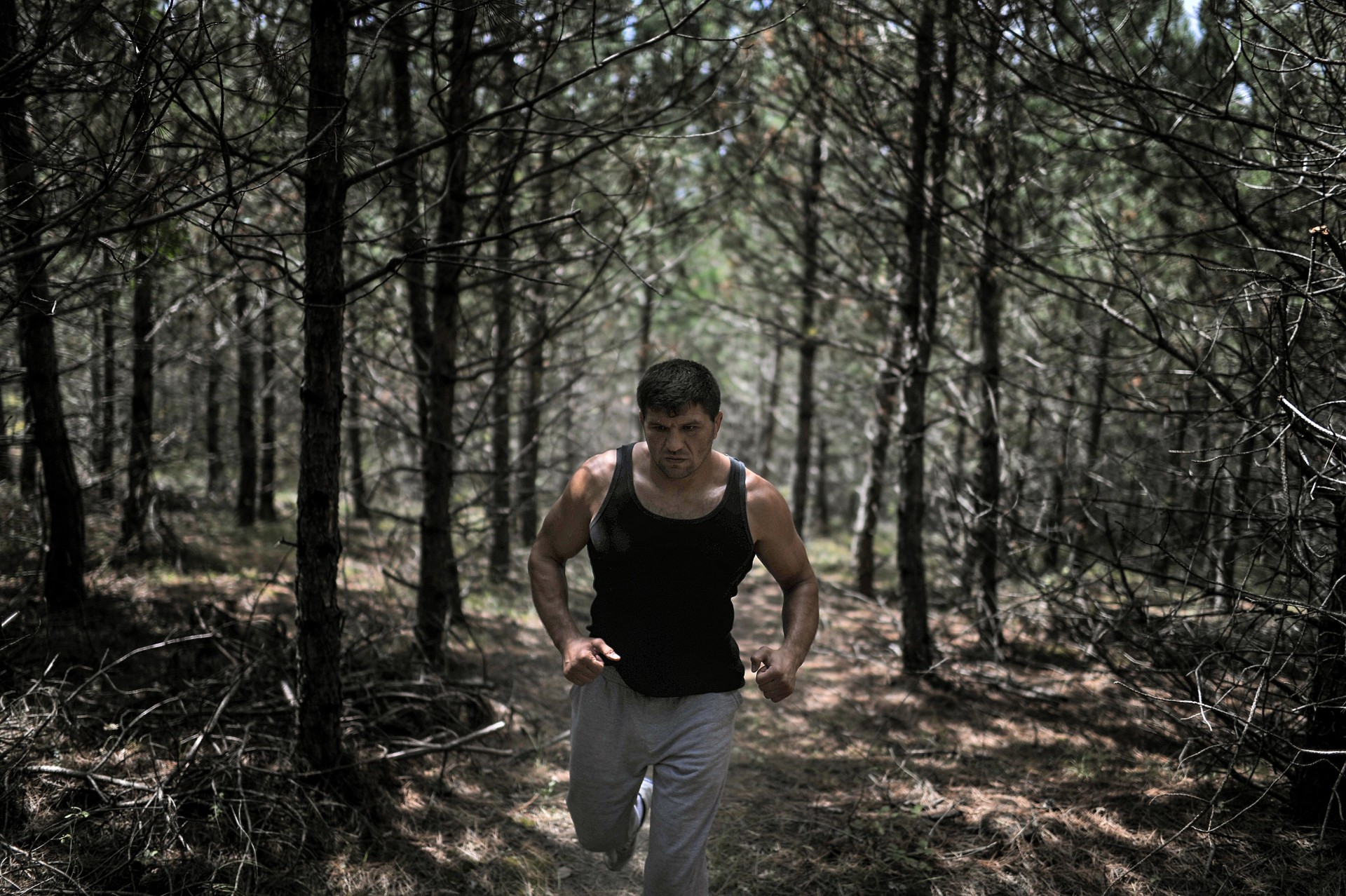 The “pehlivan” says he climbs 1.400 meters every day for two hours as part of his “holiday” training.
The “pehlivan” says he climbs 1.400 meters every day for two hours as part of his “holiday” training. 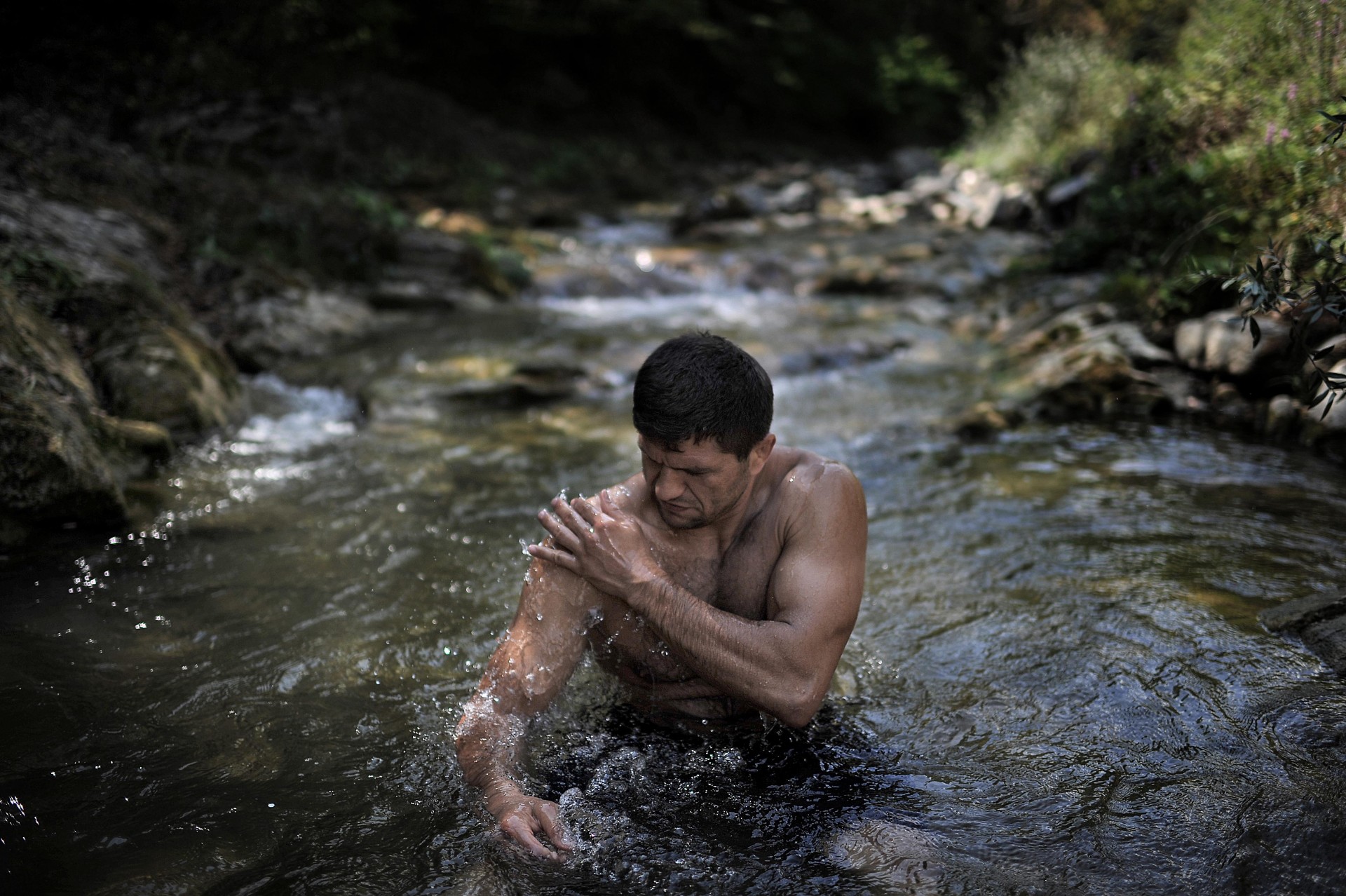 After training, Yilmaz likes to refresh his body in the cold water of a river passing by his village. (22.08.2013, Samsun, Turkey)
After training, Yilmaz likes to refresh his body in the cold water of a river passing by his village. (22.08.2013, Samsun, Turkey) 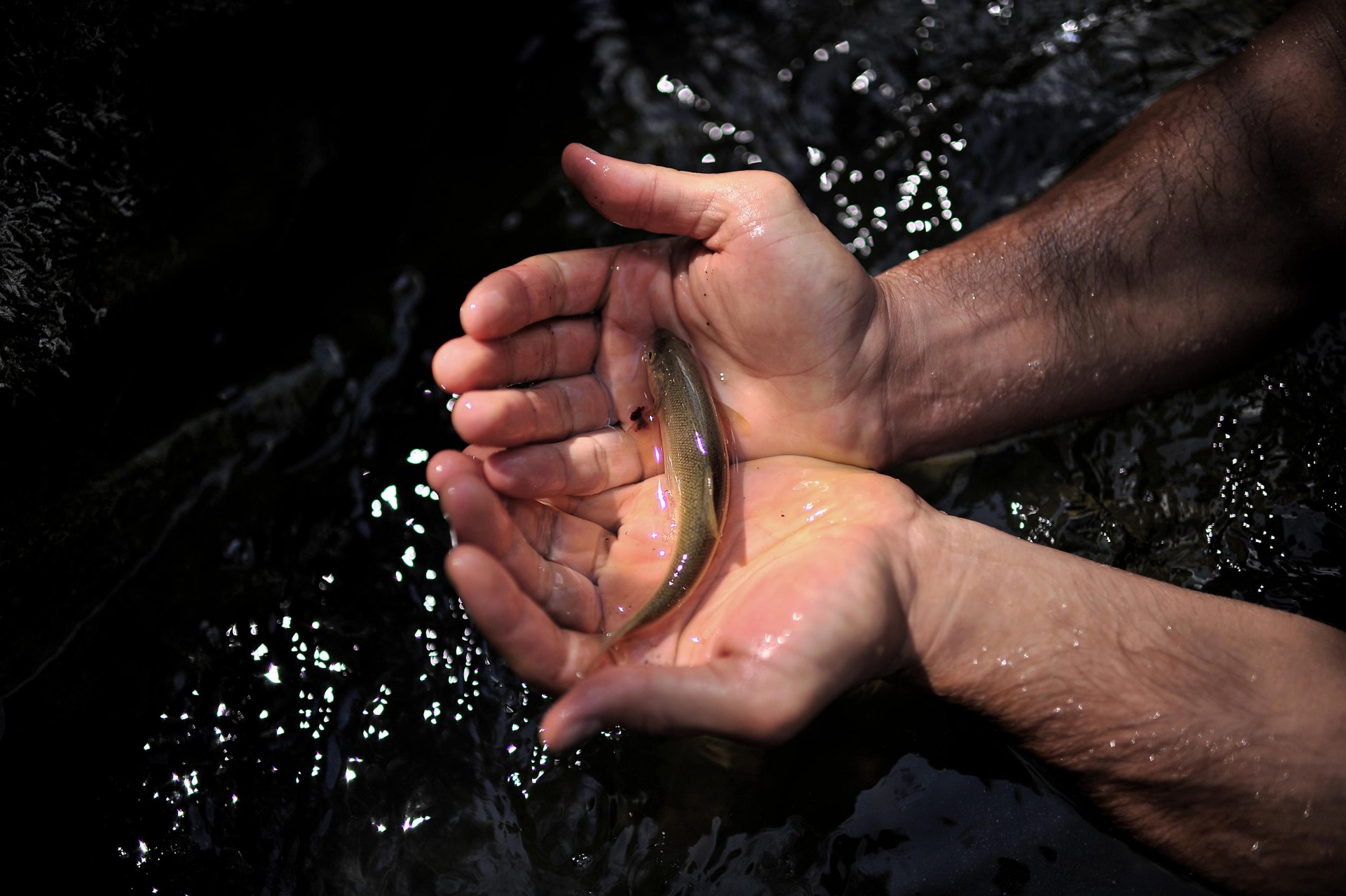 Yilmaz learned as a child how to catch fish with bare hands. He always releases the fish in the water afterwards. (22.08.2013, Samsun, Turkey)
Yilmaz learned as a child how to catch fish with bare hands. He always releases the fish in the water afterwards. (22.08.2013, Samsun, Turkey) 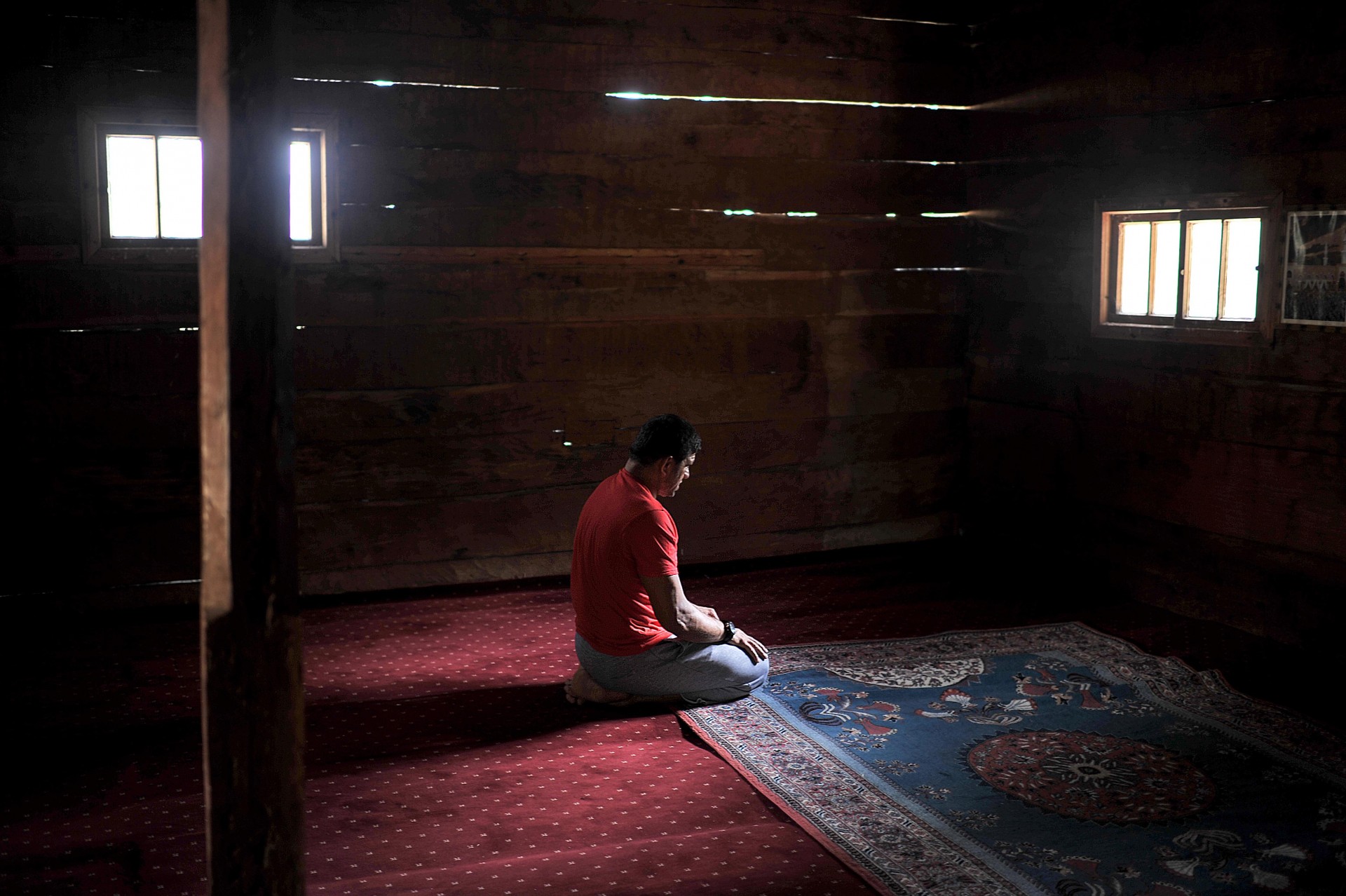 Yilmaz also enjoys spending time alone in the village's old mosque. (22.08.2013, Samsun, Turkey)
Yilmaz also enjoys spending time alone in the village's old mosque. (22.08.2013, Samsun, Turkey) 